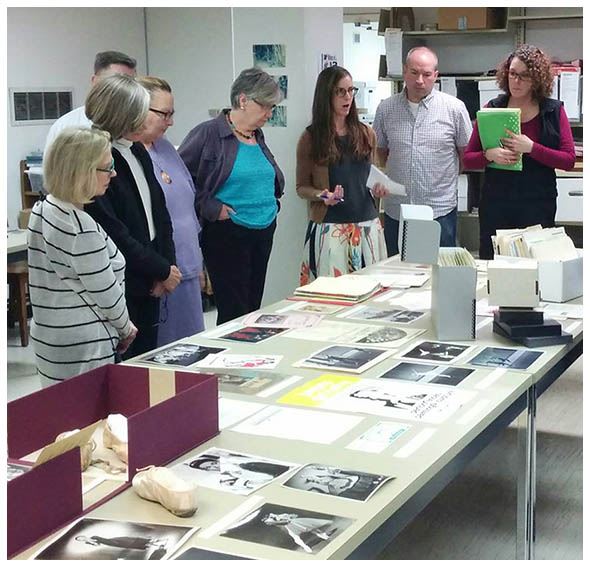CAA is seeking host sites for our second annual Chicago Open Archives. This three-day event in October is a great opportunity for archives, museums, and historical societies to engage with a broader audience than is usually possible. Our inspiration comes from similar events in Portland, Sacramento, and Cambridge, as well as CAA’s successful inaugural event in Chicago in 2015.
This year’s event will take place 6-8 October. Our theme, Yours to Explore, invites Chicagoans interested in history and cultural heritage to explore the stories that your collections tell, the role of your institution in your community, and the many different types of materials that archives hold. Your institution can participate by offering an activity that highlights your collections and programs in the way that best suits your situation.
Last year, 26 Chicago-area institutions offered a wide range of activities, from behind the scenes tours to gallery talks to workshops. The Newberry Library took visitors to the manuscripts and archives processing space where they viewed materials and discussed the Library’s collaboration with the Chicago Dance History Group. At Media Burn Independent Video Archive, which is normally not open to the public, visitors learned how the organization is making historic footage available online and enjoyed a short screening. At the Benedictine University Archives in Lisle, more than 45 visitors stopped by for an open house that offered an opportunity to see historic photos and view highlights from the rare book collection.
Please join us as host site for Chicago Open Archives: Yours to Explore. Sign-up begins in mid-April and runs through June. Learn more at www.chicagoarchivsts.org/chicago-open-archives.
“I think this event is a great idea, it encourages researchers to investigate these hidden gems in Chicago.”
“I really enjoyed seeing the National Archives for the first time. [Staff] provided a fantastic tour of the facilities and highlighted many interesting archival materials.”

Photo: Chicago Open Archives tour at the Newberry Library, 2015. Courtesy of Kelly Kress/Alison Hinderliter/Catherine Grandgeorge.